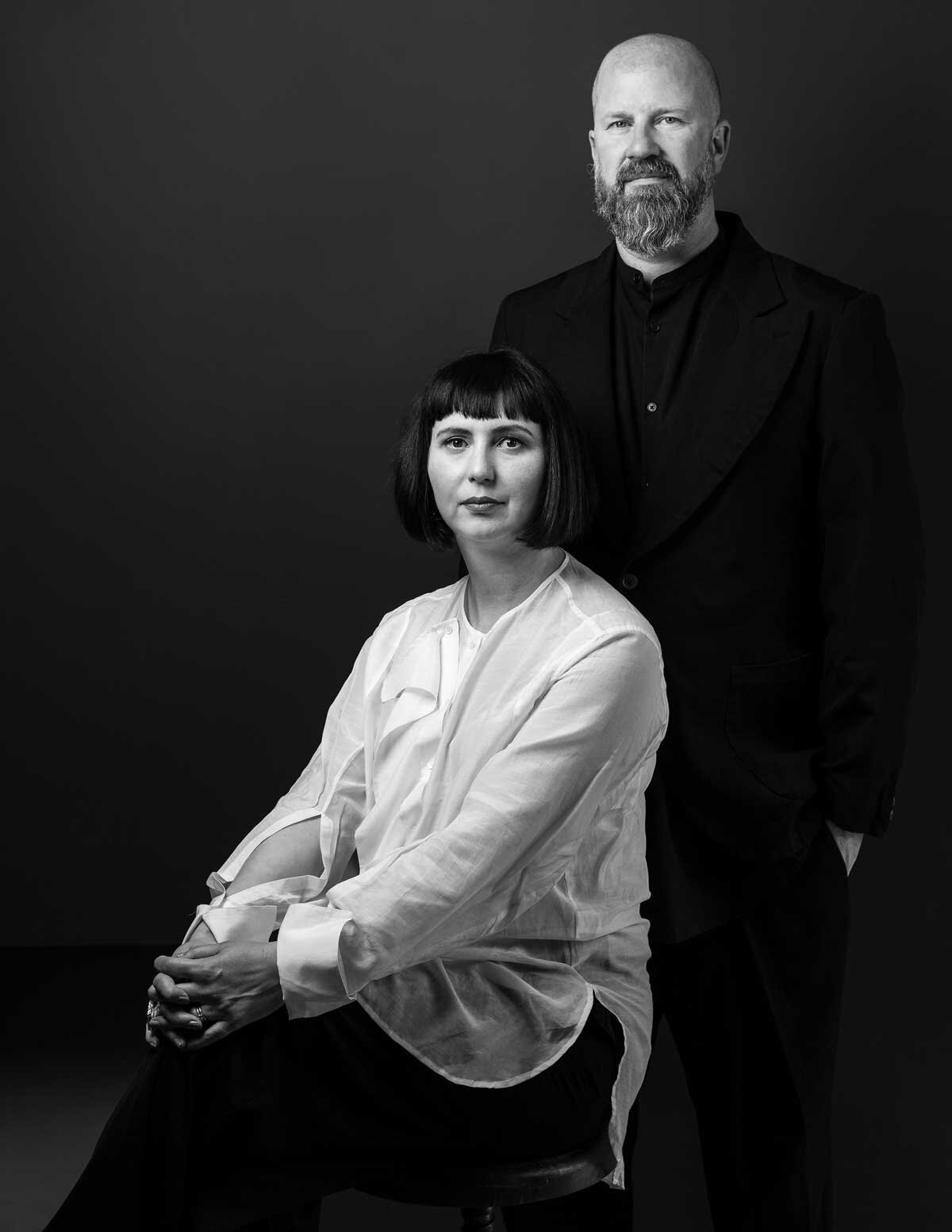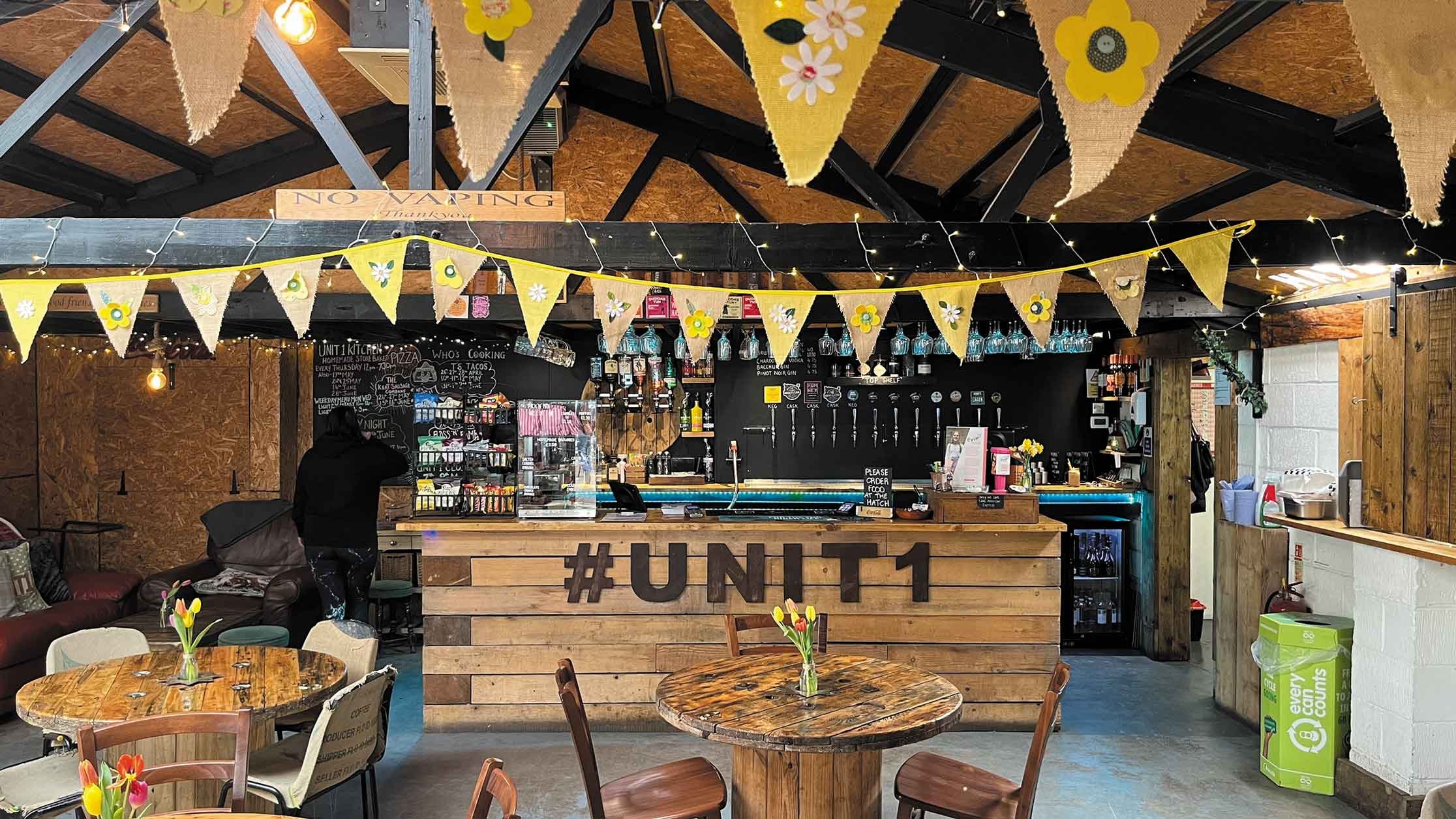Fashion Scout - From Kiev to Kenya... to Broadstairs
We meet the couple who founded Fashion Scout - an internationally renowned platform that promotes and mentors emerging designers, writes Marijke Hall
Image from Wauzine
In a 1930s Art Deco car park by Hyde Park Corner, the first-ever Fashion Scout showcase was held.
It was an edgier location than the catwalks of London, Paris and Milan, and no one really knew what the response would be.
But the unprecedented buzz surrounding this new fashion force – set up to give emerging, talented designers a platform to show off their collections – was so phenomenal that hundreds attended, including international designers and industry experts.
The next event – this time at the Scouts’ HQ at Baden-Powell House, where the name Fashion Scout (@fashionscout) was cemented – had a similar electric response.
Founder and creative director Martyn Roberts admits now, 14 years on, that he hadn’t expected what started out as a “bit of a hobby” to grow so big, so quickly.
But he and his wife, company director Biljana Poposka-Roberts, have propelled it to such heights that it’s now global and the UK’s largest independent platform at London Fashion Week.
Together they have held more than 400 catwalk shows, run acclaimed events and given a platform to the next generation of leading designers, including David Koma, Iris van Herpen and Pam Hogg.
It means meeting the visionary duo in a cafe on the beach in their hometown of Broadstairs feels a little out of context, being so far away from the fashion capital of London.
From the outset, the creative couple, who met at a party – he was in fashion PR, she was managing a gay bar in Islington although a qualified midwife – are keen to get across the main focus of Fashion Scout.
“It’s scouting, showcasing and nurturing emerging designers,” explains Martyn.
“When I was working in fashion PR, I saw how hard it was for them to showcase their collections – there wasn’t a platform that was high-end but affordable”
“When I was working in fashion PR, I saw how hard it was for them to showcase their collections – there wasn’t a platform that was high-end but affordable.”
It was from this seemingly missing link in the industry that the idea for Fashion Scout was born and, with business partner John Walford, he created what would soon be at the forefront of the industry, providing promising fashion talents with new opportunities.
“We had designers that we knew, we knew how to run events, so we thought let’s go and do it,” explains Martyn.
“So we did it and it became bigger and bigger and more successful and what started as a kind of part-time jolly and hobby became a full-time job.”
After that first car park showcase, which attracted all the “cool kids on the block”, they ran another, gaining sponsorship from Vauxhall Motors, which had been supporting bright new designer Christopher Kane.
“Vauxhall came to us and said they were looking for the next big thing and we said sponsor us and we’ll look for it for you,” says Martyn.
“So we scout, showcase and mentor emerging designers. That’s what we focused on and quite quickly we were running multiple shows a day.
“We also did things like the first fashion film in London and we did fashion presentations when no one knew what they were.
“We did one where we said ‘We’re not going to do a catwalk, we’ll do it in the foyer of the building’ and then 200-300 people turned up and we thought ‘How are we going to get them to see the models?’.
“So we stuck a ladder in the middle and the models had to climb up a few steps so people could see the clothes.”
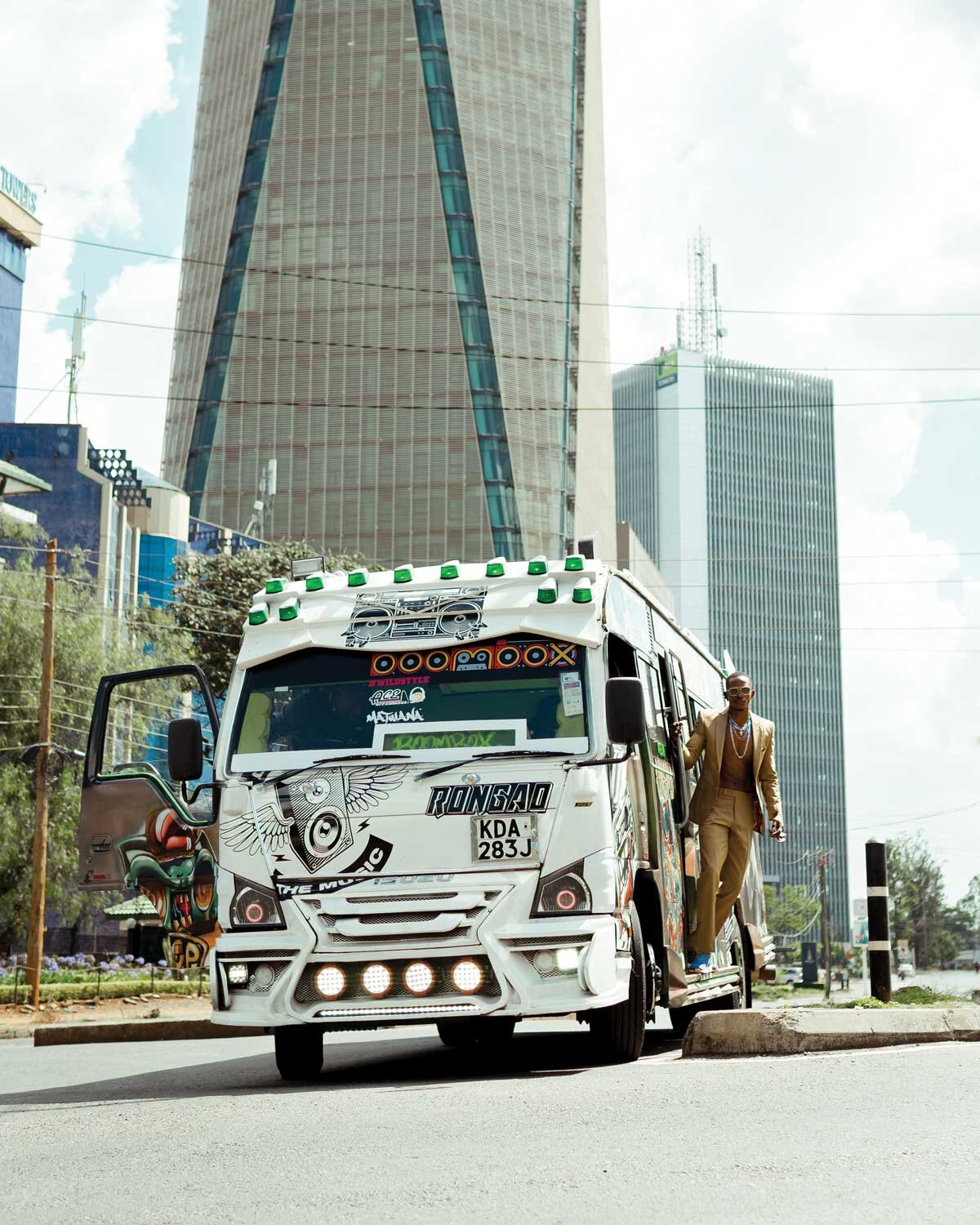
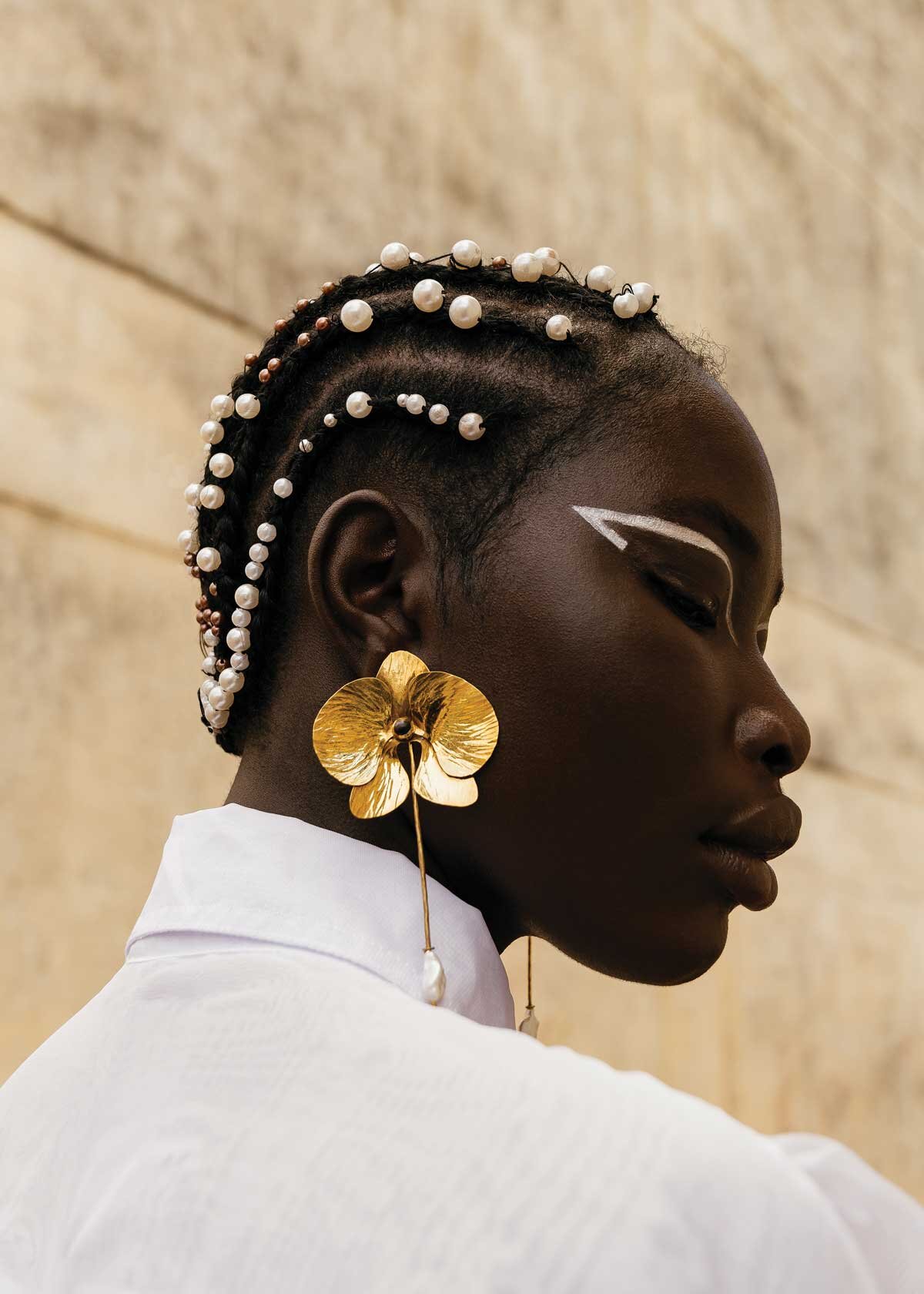
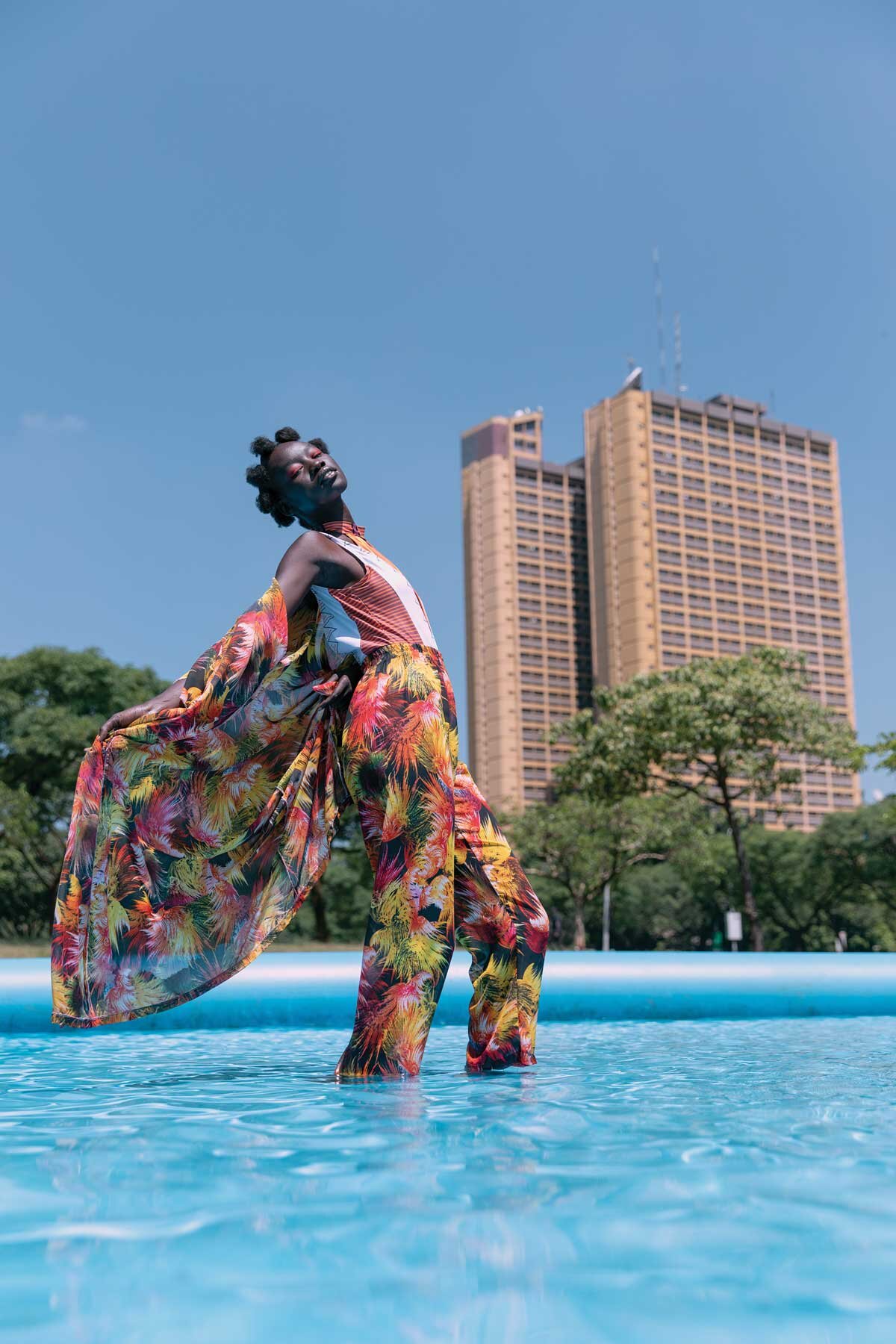
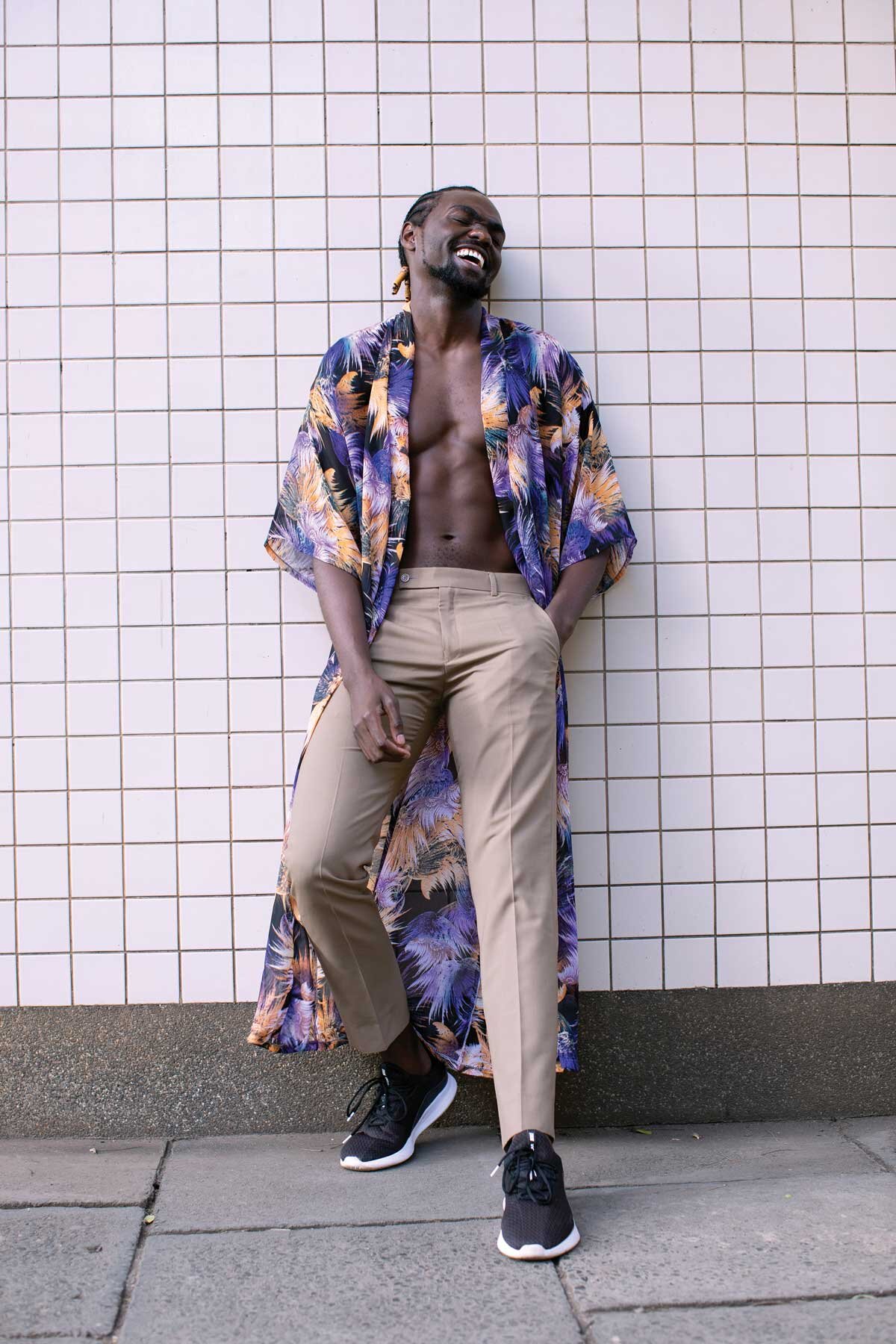
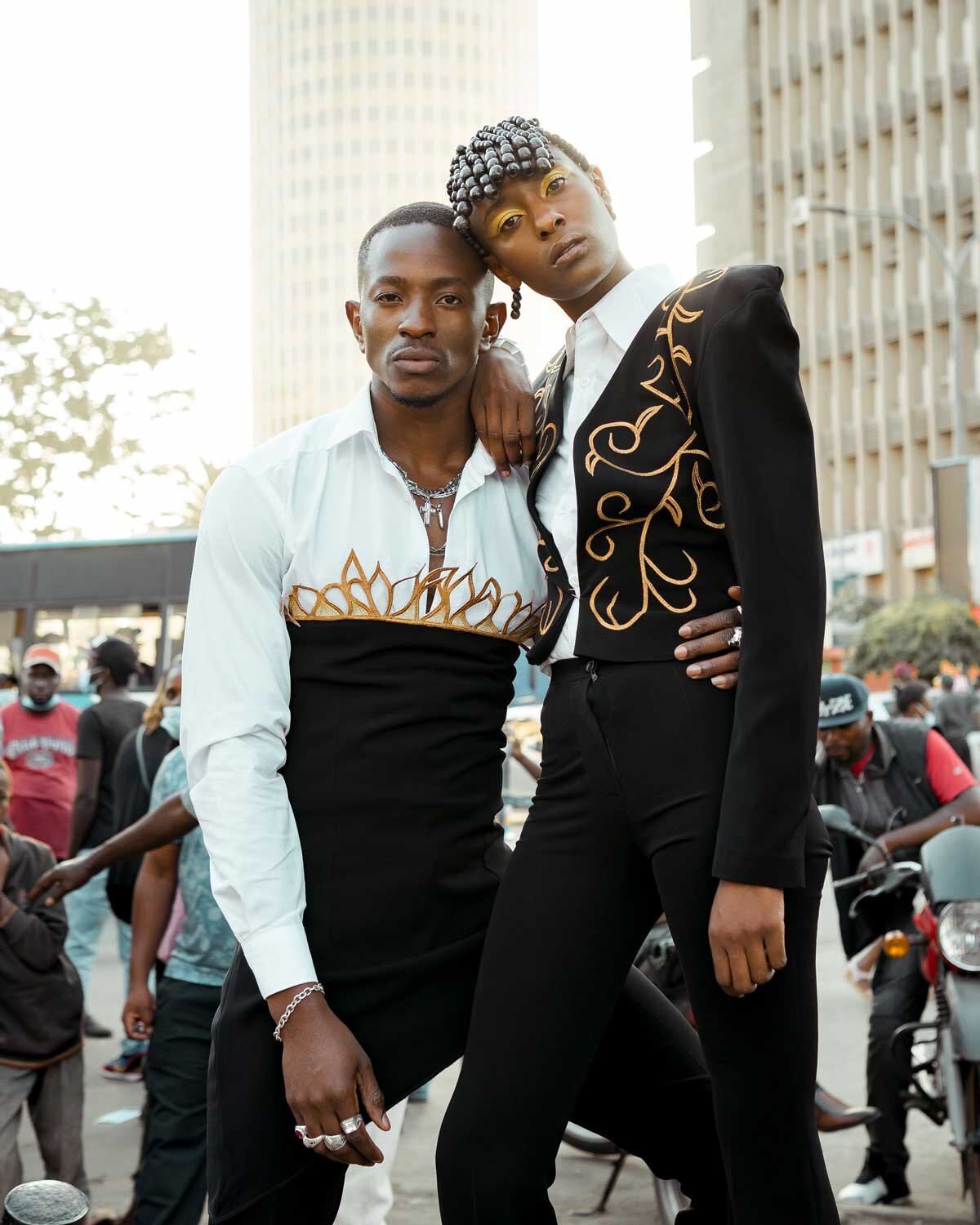
Finding Gems
It was very apparent that many of the best talents didn’t have the resources behind them to grow their businesses and so Fashion Scout started working with them, many of which have gone on to have successful careers.
Having contacts, such as Vogue Italia, Biljana says they get tipped off about designers to watch, while Martyn also actively scouts, approaching people they feel are right for the ‘London scene’.
“London is seen as one of the leading hubs for emerging designers, quite different to Milan or Paris, which are a bit more seasoned and high-end,” explains Biljana.
“We are more edgy and innovative, so instead of just looking at what we’ve got here, we bring in designers from all over and give them an opportunity to showcase and collaborate.”
According to Martyn, fashion weeks are changing, allowing for designers to do different things each season.
“When we first started, if you did a catwalk show you had to do one every single season and if for any reason you stopped, your brand was considered a failure and you dropped off the schedule and people wouldn’t support you or buy you.
“That has changed, brands now do different things.
“Designers might do a film one season, a show the next, a presentation, or go to different places.
“But also the appetite for what is fashion has grown as well.
“You used to have to show at one of the four big fashion weeks, when now we scout talent all over the world.
“So a number of years ago we were working in Ukraine and we launched a whole concept of Ukrainian fashion and people like Anna Wintour came.
“It was the whole peasant dress, off the shoulders, ruffled look – that all came from these Ukrainian designers because that was what they were putting out and then you see it ripple through the industry and end up on the high street here.
“That’s what’s different with us to most other platforms. Most are very national-based. Ours, we look for the best to bring here, so we look around the world to bring it to London.”
New Projects
The couple point out that a big part of what they do is nurturing designers and admit that graduates often come out of university with huge amounts of potential but unsure of how to develop their brand or business.
For eight years, Fashion Scout, with Martyn at the helm, was also running Graduate Fashion Week, an annual event that showcases the best new talent, including designers, stylists and photographers, to recruiters.
Biljana was at the time working with universities, the London College of Fashion and Istituto Marangoni, being the link between education and industry.
She got involved with Graduate Fashion Week and helped bring in leading luxury brands LVMH, Givenchy and Farfetch as sponsors and by the end of Fashion Scout’s tenure running the event it had some 80 universities from around the world involved.
Some 30,000 guests were coming through the door and they won patrons including Victoria Beckham, Dame Vivienne Westwood and Christopher Bailey from Burberry.
But Martyn and Biljana admit that while they achieved huge success running the event, they wanted to put the focus back on Fashion Scout, particularly mentoring.
At the end of 2019, they won the contract with the British Council to run a project in Kenya with 11 designers to help them grow, introduce them to the UK creative scene and do a showcase.
But due to Covid hampering plans, the team had to come up with another, deciding to launch a digital magazine called Wauzine.
The three editions, launched earlier this year, gave the Kenyan designers big exposure and opportunities to collaborate with people in the UK (see images).
“When people think about Kenya they think of safaris,” says Biljana. “When we went we experienced Kenya and Nairobi through the eyes of the people who live there.
“We experienced great food and drink, this great social side that people don’t know about.
“We spoke to the creative director and said through the magazine we want to represent and create a photoshoot of these clothes on real people in real locations that will capture the essence of Nairobi that you feel on a day-to-day basis.”
The magazines received praise internationally, winning plaudits from experts within the industry and boosting the designers’ exposure.
“One of the images from the first shoot featured one of our designer’s earrings and off the back of that he sold out instantly and could not keep up with production,” says Martyn.
“He was getting enquiries from all over the world.
Biljana Poposka-Roberts & Martyn Roberts
“One of the other designers reported a 400% increase in turnover from the year before, despite the pandemic, because of what she learned about how to run her business, how to price and market it.”
Despite the project coming to an end, an accelerator programme in Estonia is now starting, with designers in the process of applying.
And then there’s London Fashion Week, of course, which runs in September.
“The big discussion is a hybrid event, digital and physical,” Biljana explains.
“The positive side is that fashion weeks used to be very closed events, invitation only. Now with the digital fashion weeks, it’s open to everybody.
“The other thing I love is that many designers do not just focus on showing their collections. They have taken their customers and clients through to the production and who they are as a brand and person.”
“Designers have also slowed down a lot,” adds Martyn,
“They were on a mad race, more pieces, more and more.
“A lot of them are now looking at what sustainability means and what’s important to them and their customers and how to look after the workforces better.
“We’re seeing a lot of people saying I don’t want to have 100 stockists. What I want to do is create a business that I believe in and has good values and is sustainable.
“You’ll always have the high streets, but it’s like the food industry: you’ll always have your big chain restaurants, but then you’ll get smaller ones that value local producers and respect who’s supplying to them.”



